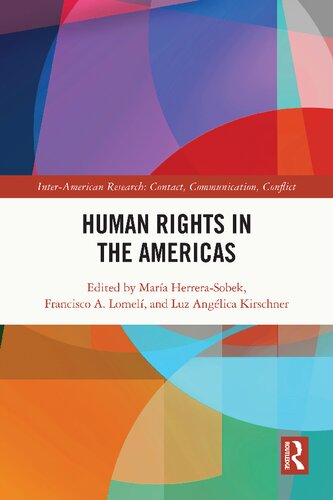

Most ebook files are in PDF format, so you can easily read them using various software such as Foxit Reader or directly on the Google Chrome browser.
Some ebook files are released by publishers in other formats such as .awz, .mobi, .epub, .fb2, etc. You may need to install specific software to read these formats on mobile/PC, such as Calibre.
Please read the tutorial at this link: https://ebookbell.com/faq
We offer FREE conversion to the popular formats you request; however, this may take some time. Therefore, right after payment, please email us, and we will try to provide the service as quickly as possible.
For some exceptional file formats or broken links (if any), please refrain from opening any disputes. Instead, email us first, and we will try to assist within a maximum of 6 hours.
EbookBell Team

4.1
60 reviewsThis interdisciplinary book explores human rights in the Americas from multiple perspectives and fields. Taking 1492 as a point of departure, the text explores Eurocentric historiographies of human rights and offer a more complete understanding of the genealogy of the human rights discourse and its many manifestations in the Americas.
The essays use a variety of approaches to reveal the larger contexts from which they emerge, providing a cross-sectional view of subjects, countries, methodologies and foci explicitly dedicated toward understanding historical factors and circumstances that have shaped human rights nationally and internationally within the Americas. The chapters explore diverse cultural, philosophical, political and literary expressions where human rights discourses circulate across the continent taking into consideration issues such as race, class, gender, genealogy and nationality. While acknowledging the ongoing centrality of the nation, the volume promotes a shift in the study of the Americas as a dynamic transnational space of conflict, domination, resistance, negotiation, complicity, accommodation, dialogue, and solidarity where individuals, nations, peoples, institutions, and intellectual and political movements share struggles, experiences, and imaginaries.
It will be of interest to all scholars and students of InterAmerican studies and those from all disciplines interested in Human Rights.